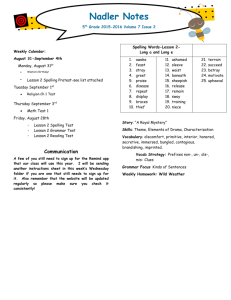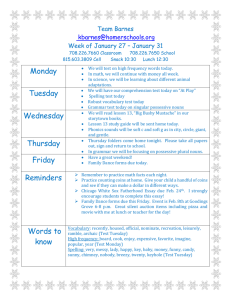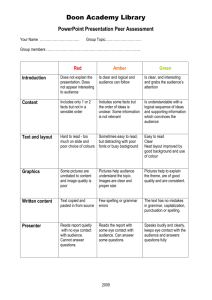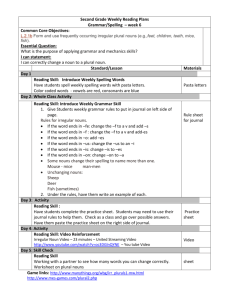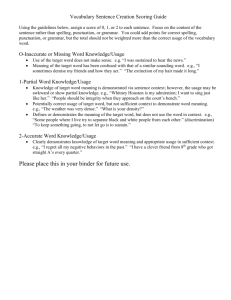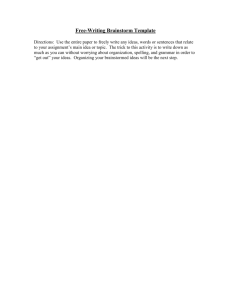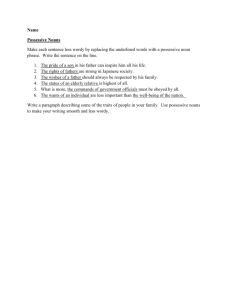9-21-2015 ELA - Trousdale County Schools
advertisement
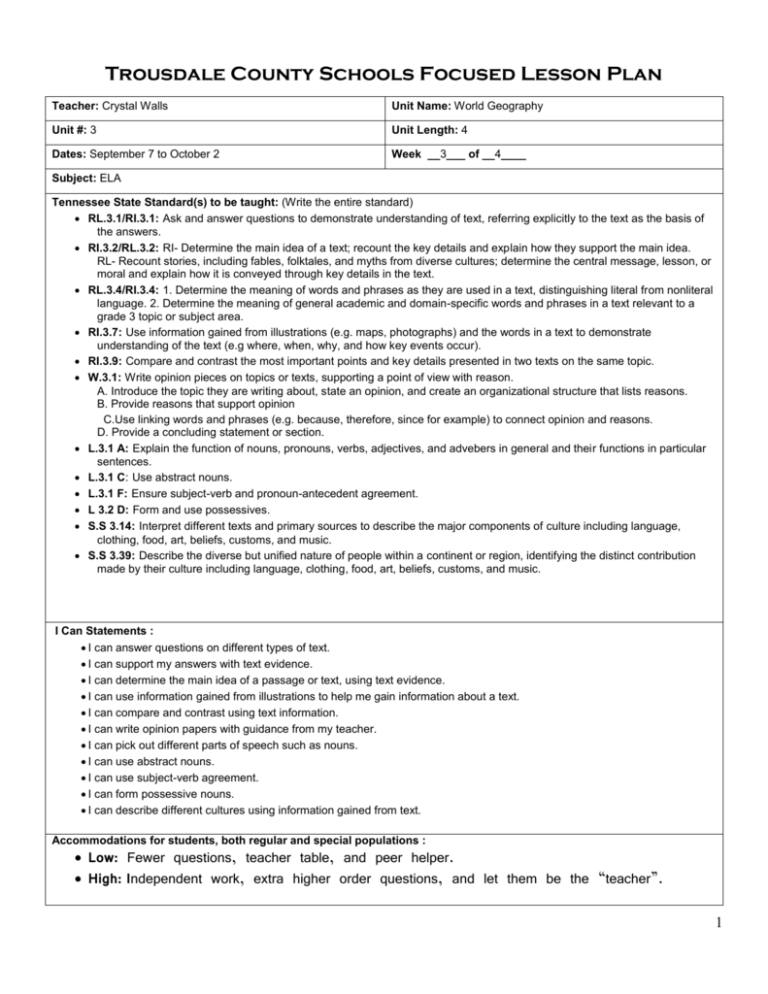
Trousdale County Schools Focused Lesson Plan Teacher: Crystal Walls Unit Name: World Geography Unit #: 3 Unit Length: 4 Dates: September 7 to October 2 Week __3___ of __4____ Subject: ELA Tennessee State Standard(s) to be taught: (Write the entire standard) RL.3.1/RI.3.1: Ask and answer questions to demonstrate understanding of text, referring explicitly to the text as the basis of the answers. RI.3.2/RL.3.2: RI- Determine the main idea of a text; recount the key details and explain how they support the main idea. RL- Recount stories, including fables, folktales, and myths from diverse cultures; determine the central message, lesson, or moral and explain how it is conveyed through key details in the text. RL.3.4/RI.3.4: 1. Determine the meaning of words and phrases as they are used in a text, distinguishing literal from nonliteral language. 2. Determine the meaning of general academic and domain-specific words and phrases in a text relevant to a grade 3 topic or subject area. RI.3.7: Use information gained from illustrations (e.g. maps, photographs) and the words in a text to demonstrate understanding of the text (e.g where, when, why, and how key events occur). RI.3.9: Compare and contrast the most important points and key details presented in two texts on the same topic. W.3.1: Write opinion pieces on topics or texts, supporting a point of view with reason. A. Introduce the topic they are writing about, state an opinion, and create an organizational structure that lists reasons. B. Provide reasons that support opinion C.Use linking words and phrases (e.g. because, therefore, since for example) to connect opinion and reasons. D. Provide a concluding statement or section. L.3.1 A: Explain the function of nouns, pronouns, verbs, adjectives, and advebers in general and their functions in particular sentences. L.3.1 C: Use abstract nouns. L.3.1 F: Ensure subject-verb and pronoun-antecedent agreement. L 3.2 D: Form and use possessives. S.S 3.14: Interpret different texts and primary sources to describe the major components of culture including language, clothing, food, art, beliefs, customs, and music. S.S 3.39: Describe the diverse but unified nature of people within a continent or region, identifying the distinct contribution made by their culture including language, clothing, food, art, beliefs, customs, and music. I Can Statements : I can answer questions on different types of text. I can support my answers with text evidence. I can determine the main idea of a passage or text, using text evidence. I can use information gained from illustrations to help me gain information about a text. I can compare and contrast using text information. I can write opinion papers with guidance from my teacher. I can pick out different parts of speech such as nouns. I can use abstract nouns. I can use subject-verb agreement. I can form possessive nouns. I can describe different cultures using information gained from text. Accommodations for students, both regular and special populations : Low: Fewer questions, teacher table, and peer helper. High: Independent work, extra higher order questions, and let them be the “teacher”. 1 Unit Vocabulary: Kamishibai Man: Familiar: Well known, as from repeated experience. Applause: Enjoyment or approval shown especially by clapping hands. Vacant: Not occupied or rented. Rickety: Likely to fall apart or break. Blurry: Dim or hard to see. Blasted: To give off a loud noise. Jerky: Marked by sudden, sharp motions. Rude: Not considerate of others. Life on the Ice: Shelter: Something that protects or covers. Colony: A group of living things of the same kind living or growing together. Constant: Without a break or pause. Wilderness: An area in a wild, natural state in which there are no people. Climate: The usual weather that occurs in a place. Region: A usually large area of the earth’s surface. Unexpected: Taking place without warning. Gliding: To move smoothly, quietly, and with ease. Overheated: Too hot. Layer: A single thickness, coating, or sheet of material covering a surface. Skill Words: Main Idea: What is the text about, from start to ending. Social Studies Words: Culture: The beliefs, customs, arts, and so on of a society or group. Customs: Traditions of a group of people. Language: The way of communicating either written or verbal. Beliefs: Trust, faith, or confidence in something or someone. Continent: One of seven large landmasses on Earth. Region: An extensive, continues part of Earth. Daily Agendas should include: Resources, Technology, Formative and/or Summative Assessments, Assignments, and a daily activity for citing text based evidence in conversations and/or writing Monday Agenda: Spelling: Introduce words Vocabulary: Introduction of vocabulary words for story (prezi, projector, computer) Reading: Read Life on the Ice as a cold read, answer questions over story, share responses and discuss in pairs, talk about answers in large group (text book, question paper) Grammar: Possessive nouns (grammar/writing book page 98- 107) Tuesday Agenda: Spelling: Write sentences using words. Reading: Read Life on the Ice in pairs, fill in graphic organizer for main idea, share responses in large group (text book, main idea organizer) Grammar: Possessive nouns (grammar/writing book page 98- 107) Wednesday Agenda: Reading: Read information on Alaska and Antarctica/Artic, use graphic organizer to compare and contrast to the two areas (graphic organizer, information on Alaska and Antarctica) Vocabulary: Vocabulary review games (white boards, vocabulary words and definitions) Grammar: Possessive nouns (grammar/writing book page 98- 107) 2 Thursday Agenda: Spelling: Review of the spelling words (spelling words and white boards) Vocabulary: Test (vocabulary test) Reading: Write over writing prompt about Life on the Ice (writing prompt, paper, text book) Grammar: Possessive nouns (grammar/writing book page 98- 107) Friday Agenda: Spelling: Test (spelling/grammar test 8) Reading: Test, finish writing over writing prompt (reading test, text books, writing information) Grammar: Test (spelling/grammar test 8) 3
